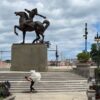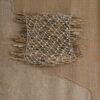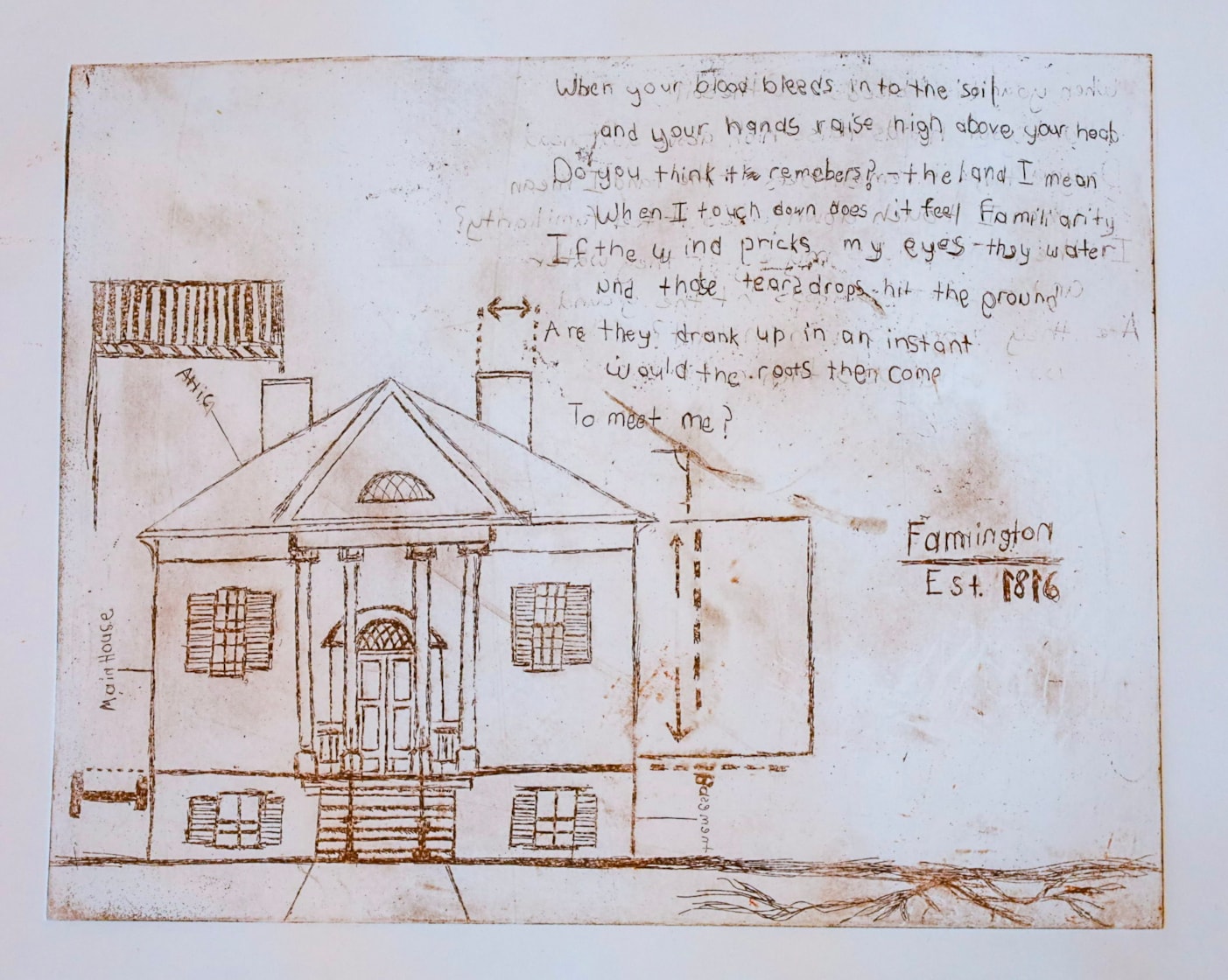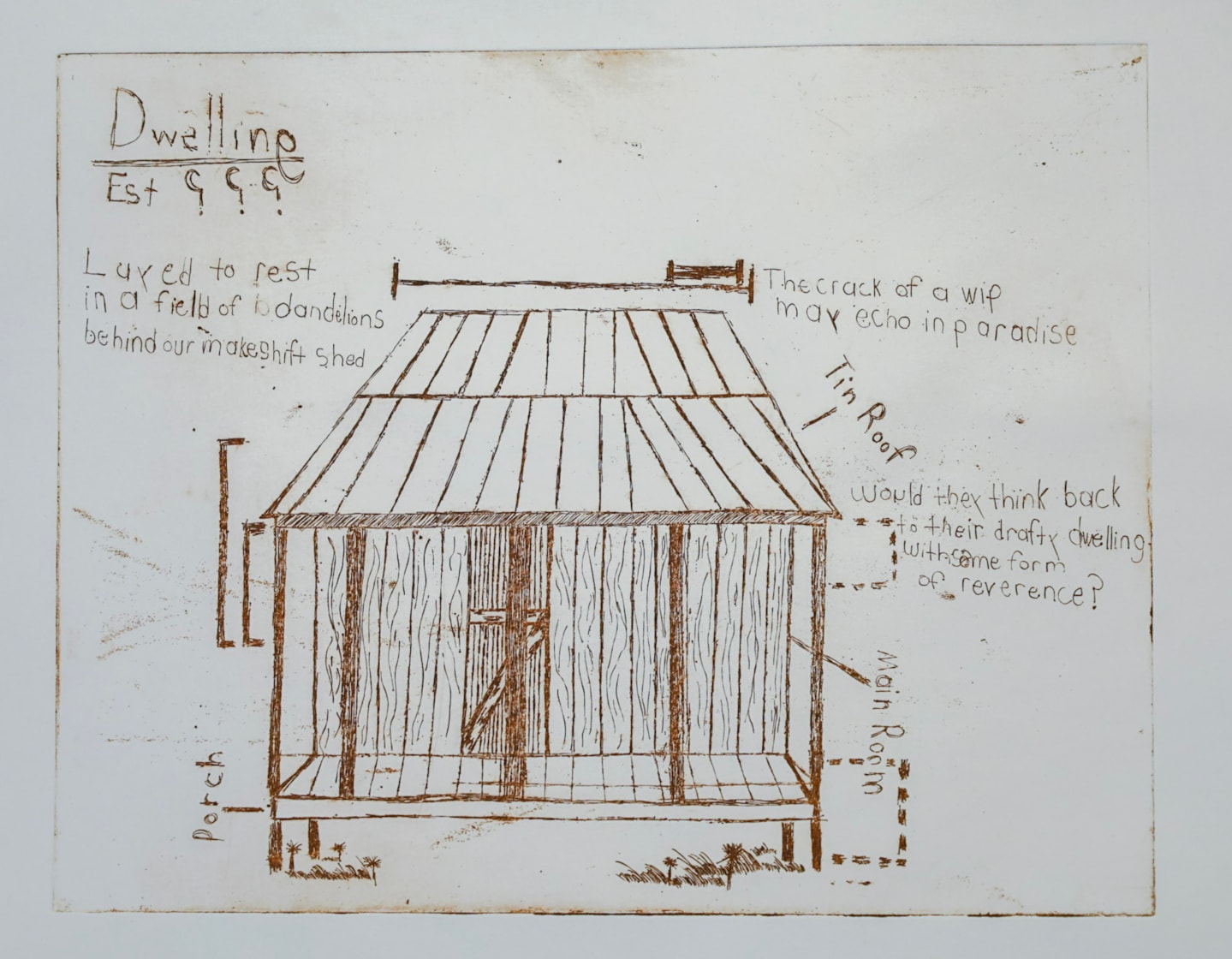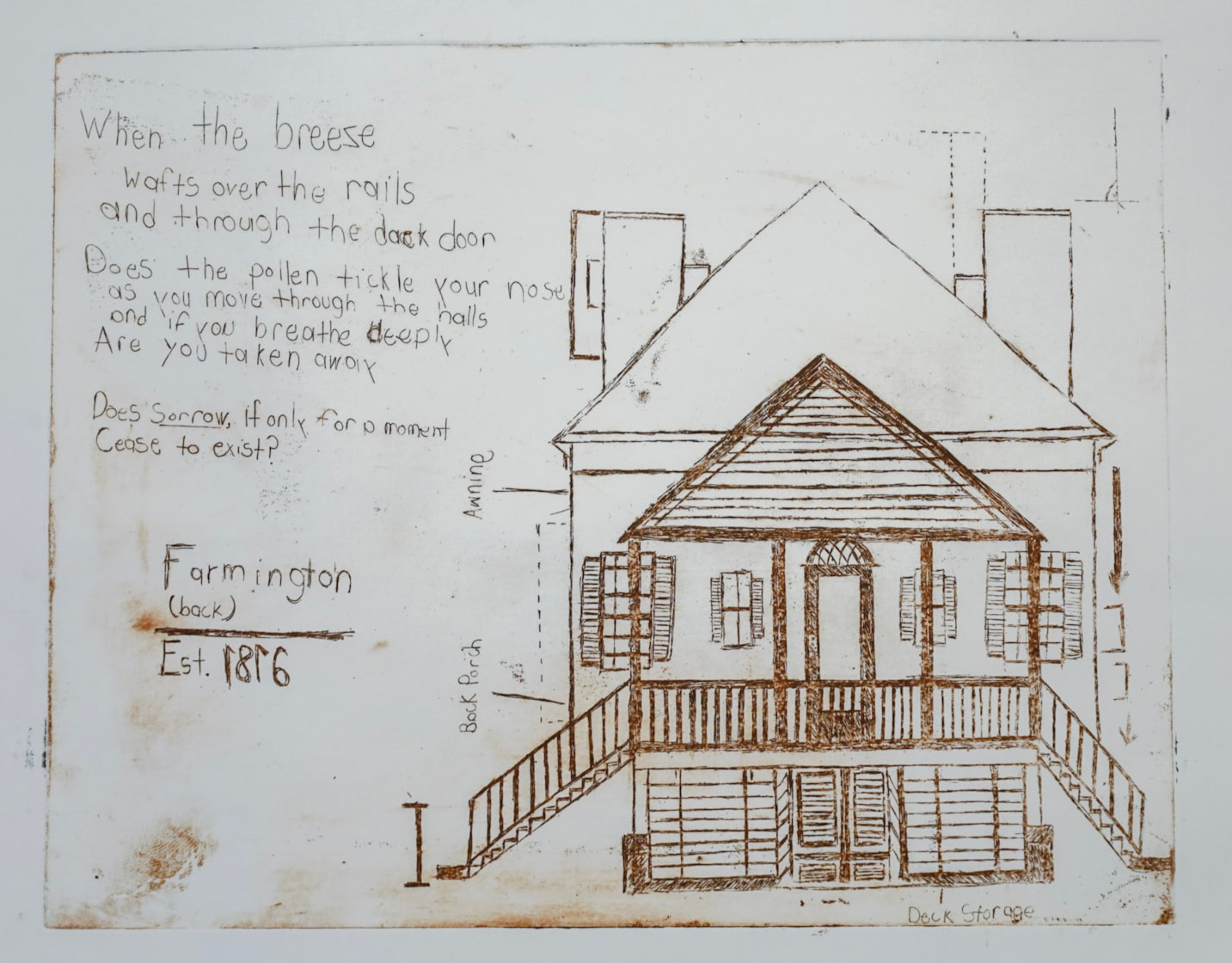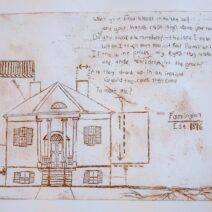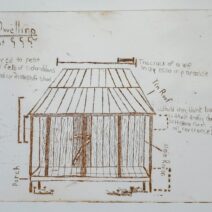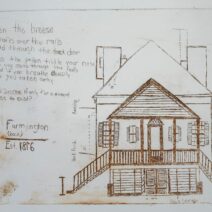ARTIST STATEMENT
The Brown-print Series Working at the intersection of traditional copper plate etching and contemporary art practice, I have developed an approach to printmaking deeply influenced by both my family history and the study of architecture. These blueprint-like etchings, with their imprecise lines, leave space for uncertainty. The plantation home depicted in these works is on Farmington Plantation, located in Louisville, Kentucky. This plantation is where my ancestors were enslaved. Many plantations focus on the grandeur of their architecture, preserving their facades while neglecting the land itself—the very land that carries the weight of exploitation.
My work serves as a commentary on this omission, shifting the focus away from the structures themselves and onto the histories embedded in the soil. The poetry serves as an act of remembrance. The dwelling is an imagining of a slave cabin, as all actual cabins on the property were destroyed. I included this in the series because I wanted to give the same symbolic weight to the place in which my ancestors called home, redirecting, for a moment, your attention to the overlooked, ensuring these spaces of resilience are honored. The choice of etching speaks to both permanence and fragility. While the process is labor-intensive, the resulting images appear uncertain, as if struggling between visibility and disappearance. I welcome the labor-intensiveness of this process, as it mirrors the weight of the subject matter. This body of work is a form of reclamation—giving form to that which has been erased.
ABOUT THE ARTIST
Rebekah Flowers is a Louisville, Kentucky native, born in 2002. She works in many mediums, including but not limited to printmaking, photography, drawing, and sculpture. Much of her work focuses on the importance of community, archives, and activism. She has an overwhelming sense of pride and admiration for where she comes from, drawing inspiration from the rich, cultural expression she has witnessed. Growing up in the inner city diversified her outlook on life, and from an early age, she witnessed and experienced the realities of living in a low-income predominantly black neighborhood. These life lessons radicalized her and placed her on a path toward the search for black liberation. Rooted in values of empowerment, she sees her art as a tool for social change. As no stranger to discomfort, she makes a conscious effort to disrupt the viewer’s comfortability in the space in which they view her work. She views her art not only as a form of self-expression, but as a platform for collaboration – an ongoing dialogue between her ancestors, family, and community.
© Rebekah Flowers

